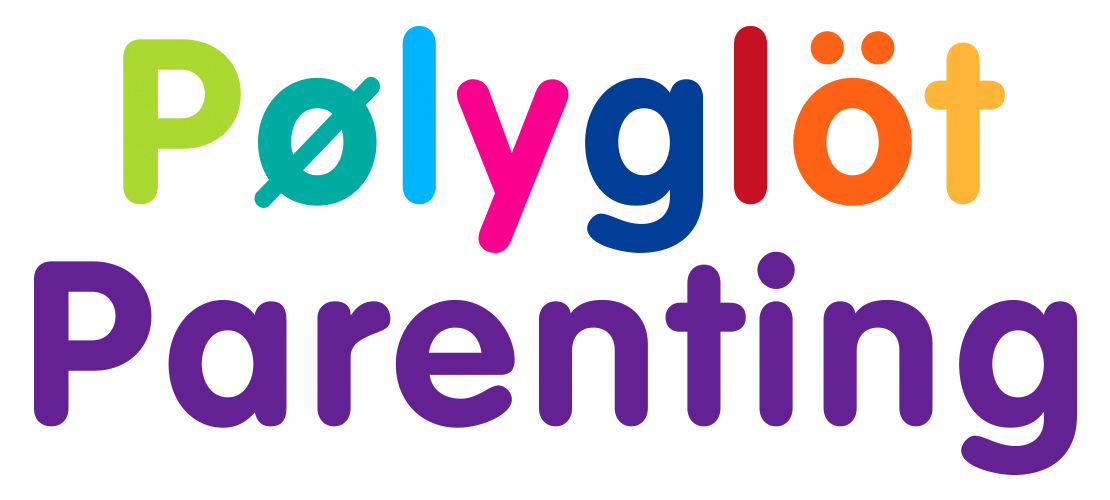As a Bilingual Parenting Consultant, I help families create language plans to meet their language goals. Many families I work with have one monolingual parent and one bilingual parent, and one of the most frequently asked questions I get is, “How can I, as someone who speaks only English, be supportive of my kid becoming bilingual? Is there anything I can do to help if I don’t speak the language myself?”
The good news is, there is plenty that the English-only parent can do to be supportive. In fact, having the monolingual parent on board with the child growing up bilingual is super important for maintaining the minority language!
Many language tips out there are directed towards what the bilingual parent can do, so monolingual parents, here are some tips especially for you!
1. Actively help with minority language exposure
There are many opportunities for language exposure in addition to speaking to the child in the home. As the monolingual parent, you can take the child to and from lessons, playgroups, or storytimes in the minority language. Find great books in the child’s other language, find CDs or online song playlists in the language, or research other at-home learning materials that seem like a good fit for your child.
Take on some of the legwork in finding different language exposure opportunities. If there is no existing playgroup that’s local to you, connect with other bilingual families on social media to create one! Pick an activity that you think will be fun (such as reading books for a storytime), and offer to volunteer a space in your home and to oversee the activity, or go in with other local families on renting a space and hiring a professional teacher. It doesn’t even have to be a storytime class – any class that a child might normally attend (like music, dance, or art) can be taught in the heritage language.
If your child is going to be taking private lessons in something anyway (for example, piano lessons), find a tutor who can teach in the heritage language.
2. Accept that you won’t understand everything
Perhaps in your family, the bilingual parent speaks only the heritage language to the child. If your family is doing child-directed One Parent One Language, don’t worry about not understanding everything that’s being said.
Feeling left out or jealousy is a natural, human response to not understanding what’s going on in a conversation between loved ones near us. Yet part of being on board with the project of raising a bilingual child may mean sacrificing understanding some conversations.
It helps to keep an eye on the big picture of raising bilingual kids and all the benefits being bilingual will mean for their future. Agree with your partner to keep open lines of communication about any ups and downs you both might be feeling – mutual trust and support is key. You may be surprised to find that you are both feeling similar emotions regarding the missed communication; often, while the monolingual parent is feeling left out, the bilingual parent is having feelings from their side of the situation such as guilt or missing having you as part of the conversation. Supporting each other through the sometimes-tough emotional aspects, articulating that you appreciate the sacrifices, time, and energy that each other are making, and reaffirming with each other that you are both on board with the goal of raising bilingual kids can be helpful.
Have something special that you and the kids share, just as the minority language is something special that the bilingual parent and the kids share – for example, a shared love for the same sport or same type of music, or activities you can do together, such as baking, painting, or anything else that speaks to you.
If there are practical concerns – for instance, you missed out on a crucial piece of information because it was only stated in the language you don’t know – make sure to communicate clearly with your partner that if it’s something you need to know too, for them to please translate it for you!
3. Learn the language
Learning a language fluently from scratch is not an easy task. Fortunately, it’s not an all-or-nothing endeavor! Learn the most common household phrases (such as “let’s go” or “it’s dinnertime”) or words that are used in your home a lot – even if just to recognize the words being spoken. This can make living in a bilingual home easier for all, and therefore more feasible in the long run.
If you have the time and inclination, and wish to study the language more seriously, consider taking a class in the heritage language. Or, as a less time-consuming option, use a free language-learning app or website. Some of those apps make language learning gamified and fun, and it’s a good option if your goal is to gain some basic conversational skills, to understand some words, or learn to say some phrases.
4. Be the bilingual cheerleader
Your attitude towards the minority language will play a huge role in setting the tone for how the whole family views the other language, so encourage the rest of your family! Cheer on your bilingual partner when the going gets tough, and let your kids know how awesome and useful you think being bilingual is.
Educate yourself about the benefits of bilingualism, as well as popular myths and misconceptions about it. The benefits of bilingualism include an increased ability in multitasking skills, problem-solving skills, metalinguistic awareness, focusing in on relevant information, and filtering out unnecessary information. There are social benefits of being able to communicate with a larger number of people, plus more future career prospects. What’s more, being bilingual is a preventative factor against Alzheimer’s later in life.
See examples of common myths here: http://polyglotparenting.com/blog/6-biggest-myths-about-raising-bilingual-kids-debunked-video/
If people make rude comments or state misconceptions when overhearing the bilingual parent speak the heritage language with the child, act as a buffer! Firmly defending your family’s choice to raise bilingual kids will often stop negative comments in their tracks.
In sum, you as the monolingual parent have a crucial role in raising kids to be bilingual. Raising bilingual kids is a marathon, not a sprint, and your support and understanding will go a huge distance towards helping your family on the bilingual journey!

***
For more tips on raising bilingual children, check out Polyglot Parenting’s online course, How to Raise A Bilingual Child.
Or, for individualized advice, families raising bilingual/multilingual children may find it useful to create a custom Family Language Plan with the help of a bilingual professional. If having a guide to help you navigate the ins and outs of implementing effective and realistic bilingual methods and strategies sounds helpful to your family, contact me for a 60 minute initial consultation via Skype.
